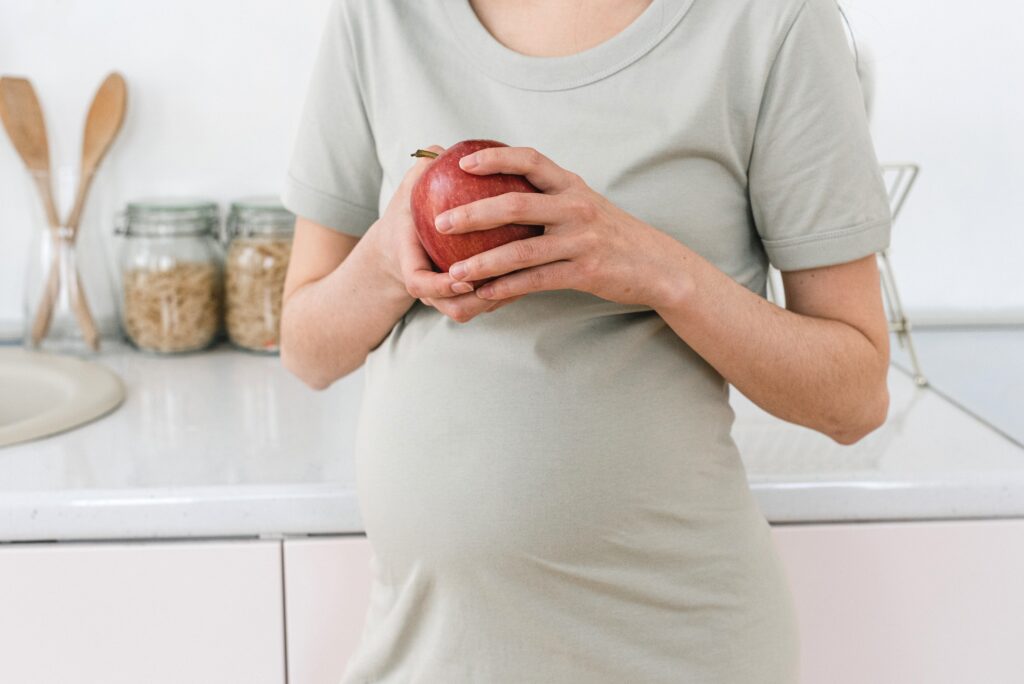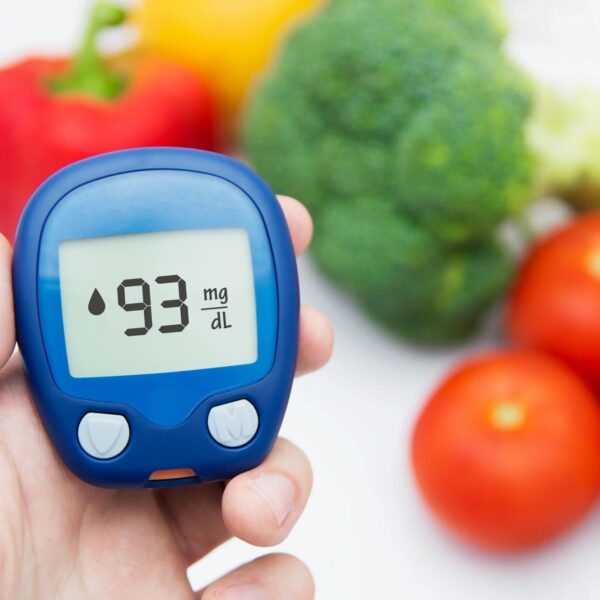Gestational diabetes is a term used to describe the elevated blood glucose levels during pregnancy. Blood glucose levels are controlled by a hormone called insulin, which is produced by the pancreas, and can be mostly managed with right diet. During pregnancy, the body produces hormones that prevent the insulin from working well, leading to higher blood glucose readings and the diagnosis of gestational diabetes. Let’s find out how Gestational Diabetes and Diet are connected.
Gestational diabetes can develop at any stage during pregnancy but it is most common in the second and third trimesters. It usually disappears after birth.
Gestational diabetes is a common condition and affects about 1 in 6 pregnancies worldwide
If uncontrolled, gestational diabetes can lead to unfavorable pregnancy outcomes, such as a large baby, need for a cesarean section or induced labor, and others.
A diagnosis of gestational diabetes increases the risk of developing type 2 diabetes in the future or gestational diabetes in the following pregnancy.
Gestational diabetes can be managed by a healthy balanced diet and blood sugar monitoring. Medication might be required to control blood glucose levels. It is important to avoid excess weight gain during pregnancy.
Diet and gestational diabetes
The main focus is a healthy balanced diet, including foods from all food groups, to ensure you and your baby are getting enough vitamins, minerals, and nutrients. Choosing healthy and nutritious food will prevent excess weight gain and support the development and growth of your baby.
Carbohydrates
The main nutrient affecting blood glucose levels is called carbohydrates. Carbohydrates include starchy foods (such as potatoes/ rice/ pasta etc), natural sugars (fruit/milk/ yogurt) and added sugars (cakes/ biscuits/ sugary drinks). When eaten, these foods get broken down into glucose and absorbed into the bloodstream, affecting blood glucose levels.
Carbohydrates are the body’s main source of energy and should therefore be a part of a healthy balanced diet. It is not advisable to cut carbohydrates from your diet, since this can result in the build up of ketones, which can be harmful to you and your baby.

Dietary advice
Starchy carbohydrates:
- Try to have 3-5 portions per day – Try to cover ¼ of your plate at all meal times
- Initially limit to ¼ of your plate at all meal times (equal to 30-50g carbohydrate)
- Try to choose wholemeal varieties, which help achieve better glucose control and avoid constipation, which is common in pregnancy.
- Your dietitian will advise you further.
Meat, fish and alternatives:
- Try to have at least twice a day – Try to cover ¼ of your plate at all meal times
- These are foods such as meat, fish, poultry, lentils, eggs, quorn, tofu, soya, nuts
- These foods are a good source of protein and minerals and provide you with iron, which is important in pregnancy.
- Choose lean meats to avoid excess weight gain.
Dairy and alternatives:
- Aim for three portions per day
- This section includes foods such as milk, cheese and yogurt. These foods are rich in calcium and protein. Choose lower fat versions and avoid canned milks to limit weight gain.
- As discussed above, milk and yogurt contain natural sugars and if eaten in large amounts will affect your blood glucose levels.
- Unsweetened nut and coconut milks are lower in carbohydrates and can be used as an alternative.
Fruit and vegetables:
- Eat at least 5 portions per day. Include more vegetables and salads.
- Try to cover ½ of your plate with vegetables at meal times.
- Avoid pure fruit juice and juice drinks, since these will raise the blood glucose levels.
- Avoid milkshakes and store bought smoothies.
- Berries are lower in sugar and can be a good choice for gestational diabetes.
- All fruits contain natural sugars. Avoid more than 1 portion at a time. 1 portion is equal to the palm of your hand.
Healthier fats:
- These foods do not directly raise blood glucose levels, but contain a lot of calories so can result in excess weight gain.
- Choose vegetable oils and spreads (olive, vegetable or rapeseed oil) and olive or sunflower spreads. Only use in small amounts and choose lower fat varieties.
Foods high in sugar (and fat):
- These are foods such as cakes, crisps, biscuits, ice cream. These foods will affect blood glucose and weight. These foods can be part of a balanced diet, only if they are eaten as a treat.
- Choose sugar free drinks and low-fat varieties when possible.
To sum up:
Gestational diabetes is a condition that occurs during pregnancy and usually goes away after birth. A healthy balanced diet will help manage blood glucose and weight. It is advisable to avoid gaining excess weight during the pregnancy. By maintaining healthy diet changes after pregnancy, the risk of developing type 2 diabetes reduces. Speak to a dietitian if you want further advice on a diet if you have been diagnosed with gestational diabetes.
*limited time only
Vicky Gkloumpou
Vicky is a Diabetes Specialist Dietitian, RD, MSC working in NHS Scotland. Honorary clinical teacher. Also the owner of @nnutrimission instagram, nnutrimissionbyvg- facebook




